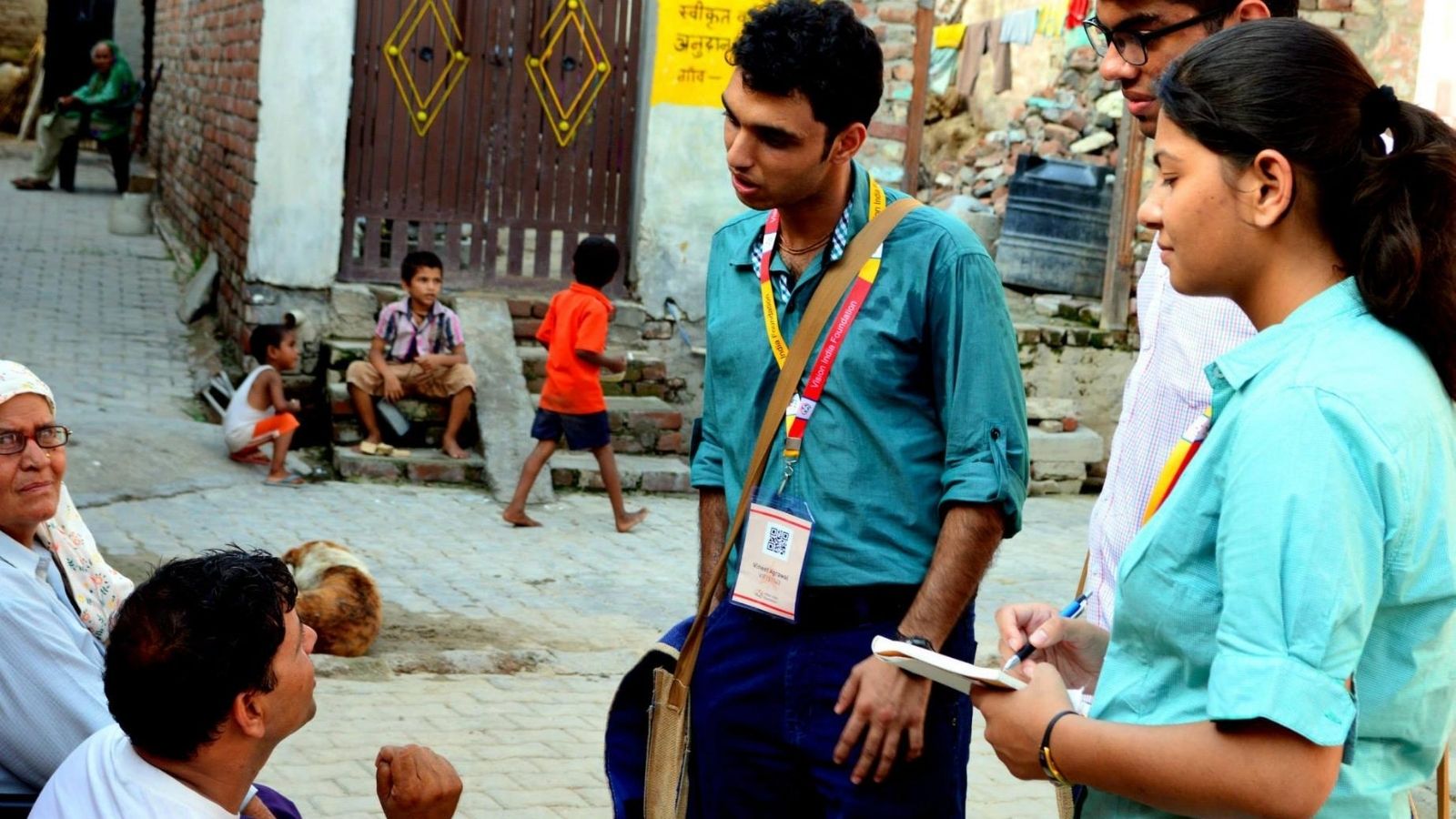By Rohit Parikh, Delegate at Policy BootCamp
On Day 8 of the BootCamp, there was more excitement than usual amongst the BootCamp delegates for we were going to go the highly awaited field visit. As for most of the delegates (myself included) this was a first-ever exposure to seeing the countryside in Haryana, we were unsure what to expect. We were quite keen to see and assess for ourselves how the current policies and administration served the people in rural Haryana. I was in group number 3 and we were told that we would be going to Asawarpur village which was on the outskirts of Sonepat city (situated right next to the sprawling campus of Rajiv Gandhi Education City). After reaching the village, we were to spend the next few hours in small groups visiting the people to get a ground reality check understanding the situation on the ground.
After walking for what seemed forever around the village, we nervously approached a retired man Ishwarchand (name changed) who smilingly welcomed us. Ishwarchand (or Tauji as we referred to him) was a retired man who used to be a farmer. His land was amongst the ones which was taken by the government and used for the Rajiv Gandhi Education City development. We later learnt that there was a 5-yr battle that was fought by the farmers which successfully ensured they received appropriate prices for the land acquisition for the Education city.
Tauji told us that there were no medical institutions nearby, the nearest one that he could access was around 12 kms from his house. Tauji had 3 grown up children – 1 worked at a petrol pump, another at a medical store (both of whom lived in Delhi) and the third one didn’t have any job at all. Although we could see that he clearly lived in conditions of deprivation he did not have a BPL card ; Tauji confirmed what we already suspected that getting a BPL card is a curious case of combination involving multiple factors – the 3 C’s caste, connections with the assessors and corruption. He mentioned that most of the Above Poverty Line families would have BPL cards whereas only some of the BPL families would have those cards too. Even then, the officially defined poverty line of Rs 32 a day in rural India left much to be answered to the people.
We also spoke to Tejus (name changed), who was the only graduate in the locality and was working in a private firm nearby after having pursued his graduation through a distance learning course. We learnt from Tejus that he sent his kids to a private school at a certain distance, as although there was a government school nearby; the teachers would either not turn up at the school or if they did turn up provide even semi-decent quality of education. Which is why even today (and not unlike most of the other 650,000 villages in the country), students in the Aswarpur who could not afford private education could not get decent quality education.
We couldn’t help but wonder as to how the fruits of development in the country being unevenly shared held true even in Aswarpur where we still had people who could not get decent quality primary education in a village right next to the ironically titled Education City which hosted some of the finest education institutions in the country. We also noticed the huge pile of waste in the open gutters right outside Tauji’s house which in addition to serving as a dustbin for him also attracted a lot of flies in the house.
After spending a few hours speaking to Tejas, Tauji and a few other villagers we started making our way back to the bus bidding goodbyes feeling grateful for the heartfelt hospitality extended to us and quietly reflected at what we had learnt in the last few hrs. With a million questions and no clear solutions as to what could be done to improve the ground realities in Aswarpur, we certainly had an eye-opener with regards to the magnitude of the task in front of the country. We would without a doubt remember the lessons and experiences from Aswarpur trip as we started taking our first steps on working towards making India a more equitable place.
Rohit Parakh currently works in the financial services industry in London in his day-job. He also voluntarily leads the UK Chapter of a Bangalore-based non-profit social enterprise called RangDe. He is also working on Democracy Reforms in South Asia (with ex- Indian Chief Election Commissioner Dr Quraishi). He can be reached out at rohit.2691@gmail.com

